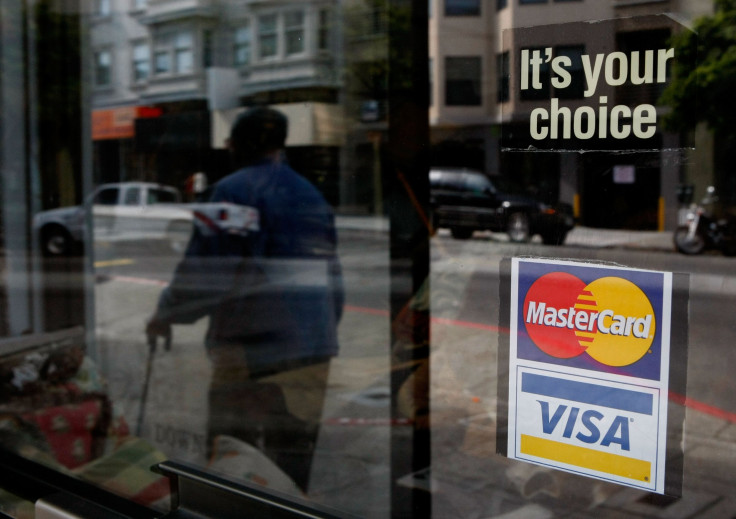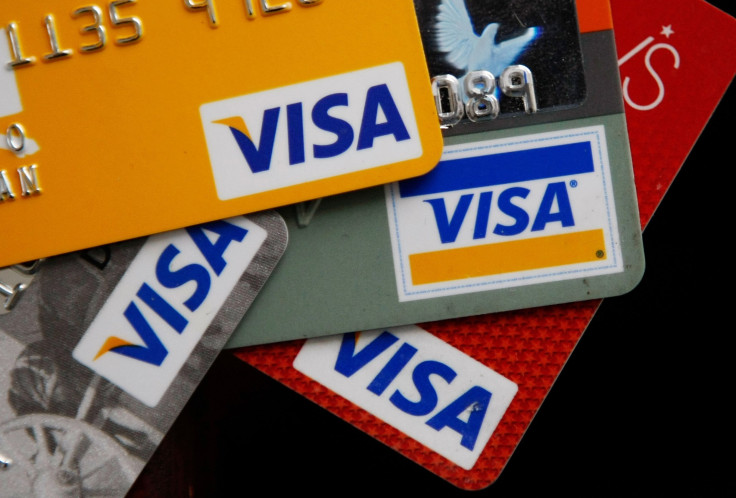Credit Card Debt: How To Get Your Finances In Order For Good In 2016

Last March, Lauren Bowling made her final credit card payment. Her debt-free journey began in January, when, like many people do, she took a hard look at her financial situation. “No one feels good about their finances after the holidays,” she said. “You have all this baggage.”
Credit card debt is almost a rite of passage in the U.S. Thirty-nine percent of American households currently have an outstanding balance, averaging over $15,000. Holiday spending is a major factor, with 35 percent of people maxing out one or more credit cards during the annual shopping frenzy, according to a survey from Savings.com. The average credit card interest rate is 15 percent, which adds up to over $2,400 in annual interest on a balance of $15,000. That’s more than 4 percent of the median American income of $53,657.
Bowling’s achievement was well timed. Last December, the Federal Reserve Board started raising interest rates. Those carrying credit card debt will soon see the impact of that decision with higher monthly payments. Talk of a possible recession in the U.S. could eventually lead to layoffs, making it even more difficult to pay off debt. Prioritizing debt repayment is always a worthwhile goal, but it’s especially wise given the current economic environment.

According to Beth Shurtz, a financial planner based in Dallas, getting organized is an essential first step. “Get all the statements and plug them into a software or a basic Excel spreadsheet to help prioritize which ones should be knocked out first,” she said. Shurtz recommends using the so-called debt snowball approach by paying off the credit card with the smallest balance first, to gain momentum.
One explanation for high credit card balances in the U.S. may be that most people do not realize how much they owe. Debt levels reported by the Federal Reserve Bank of New York are 1.5 times greater than self-reported debt levels. Nearly 1 in 4 Americans have been surprised by their credit card bill, according to a NerdWallet study.
Taking a closer look at her debt helped Bowling feel more in control. “If you’re stressed out about money, spend more time with your money,” Bowling said. “Knowledge is the best way to combat stress and anxiety,” she added.
Bowling, who lives in Atlanta, had racked up $8,000 in credit card debt after going way over budget on a home renovation project. It wasn’t the first time she found herself with thousands of dollars in credit card debt. When she was in college, she shopped her way to $10,000 worth of debt, a balance she successfully paid off three years ago.
“I should have known better,” she said.
Her previous experience taught her that getting out of debt means having one less thing to think about. “If you have debt, worrying about it, trying to coordinate payments or trying to pay it off takes a lot of mental energy,” Bowling said. This time around, she was committed to paying off her credit card debt for good.
Bowling knew to be successful, she’d have to focus on two things: accountability and speed. She writes a blog, and publicly announced her plan to pay off her debt. She also knew dragging the goal out over a year or longer wouldn’t work for her. She would need to make quick progress to stay on track.
Staying motivated is a common challenge for those trying to get out of debt, especially when stress is a factor. Dr. Barbara Nusbaum, a psychologist who specializes in helping people with the emotional side of money, says visualization can be a useful tool when it comes to achieving financial goals. People who visualize their goals are less anxious than those who don't, and among those who do, 73 percent feel accomplished and happy, compared with 50 percent who don’t, according to a recent study from TD Bank.
Nusbaum says effective visualizations could be as simple as imagining what it will feel like to make a final debt payment. Or it could mean carrying a picture of your goal in your wallet, or creating a debt repayment thermometer that you fill in as you go, just like in elementary school fundraising campaigns. “If you visualize you are much better at taking actual steps,” she said.
Friends and family can provide encouragement too, but they can also make the problem worse if they aren’t good with money themselves. “Surround yourself with other people who are like-minded and trying to get out of debt too,” said Shurtz. “If you’re hanging around people who overspend then you’ll be more likely to overspend.”

Ultimately, the reason for wanting to get out of debt needs to be just as personal as the reason for getting into it in the first place. “Any type of financial goal — whether it’s debt repayment or savings — works better when you have a personal element tied to it. It’s not enough to say I want to get out of debt just to get out of debt,” Bowling said.
Bowling’s goal was to start her own business, something she did shortly after her last credit card payment was processed. Other reasons, like wanting to take a trip or purchase a home, can work as well. The key is to work toward something that will keep you motivated when times get tough.
While she was paying down her debt, Bowling went on a spending fast, giving herself a budget of only $25 a week after her necessary expenses were paid. She also picked up extra work on weekends and evenings, funneling all of the income toward her credit card payments. Within 90 days, her $8,000 balance was gone.
Now that she is debt-free, Bowling no longer allows herself to use a credit card. Given her history, she says she is better off exclusively using her debit card. But she’s optimistic about her ability to stay debt-free.
“I do feel like having been through both sets of extreme debt payoffs that I am now a debt payoff ninja,” she said. “Hopefully it’s gone for good.”
© Copyright IBTimes 2025. All rights reserved.





















